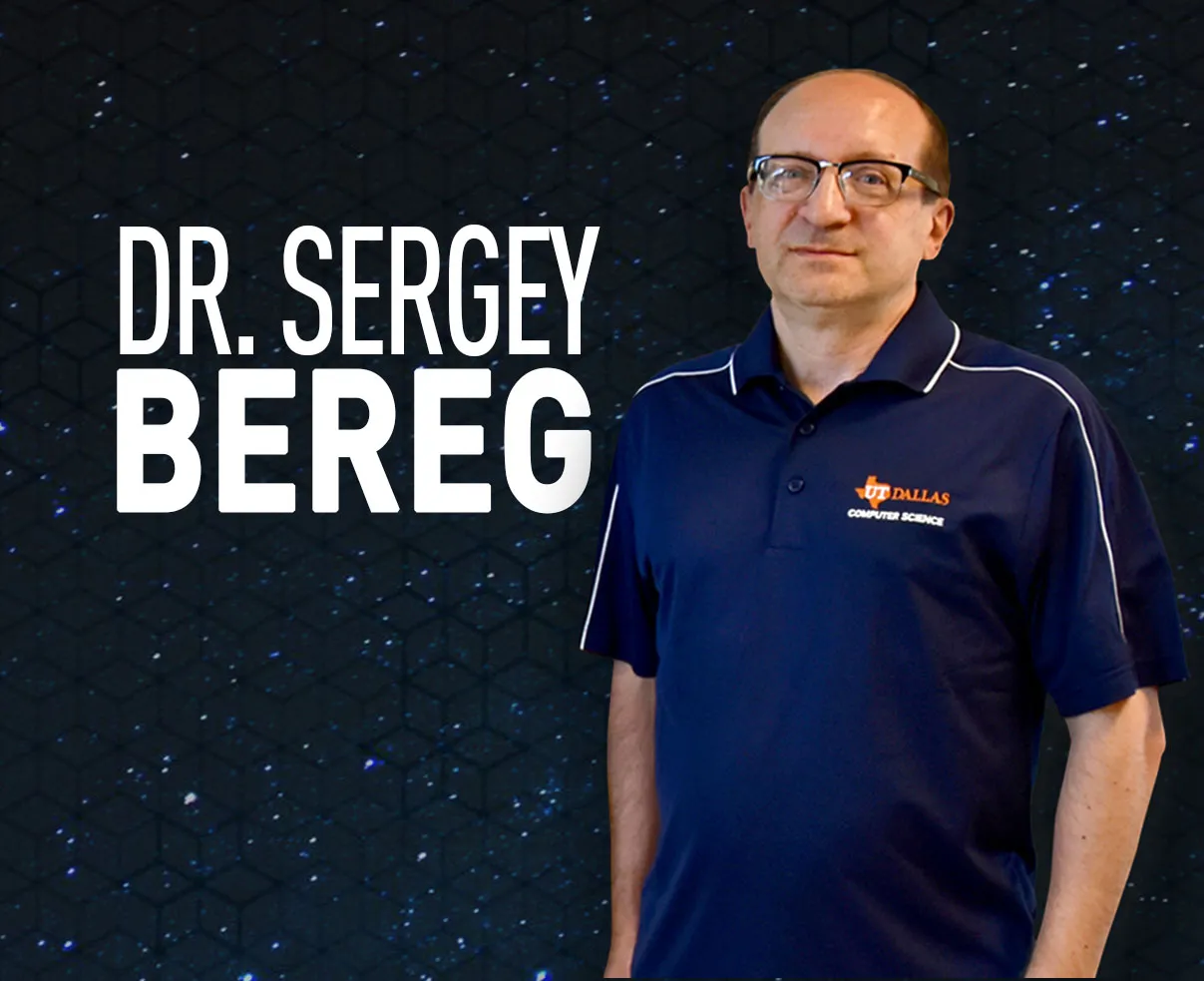Dr. Sergey Bereg Utilizes Computational Geometry Research for Musicological Analysis of the Spanish Flamenco Dance

Dr. Sergey Bereg, UT Dallas CS Professor and founding member of the Dallas Institute for Interactive and Spatial Computing (UT-DIISC), traveled to Spain this past summer to take part in the International COFLA: Computational Analysis of Flamenco Music research project. The COFLA research project deals with the study of flamenco music from a technological perspective. Dr. Bereg and other project researchers investigate how computational models can support the analysis, characterization, and synthesis of flamenco music. This project is an interdisciplinary effort uniting experts in musicology, mathematics, audio signal processing, music psychology, and music-information retrieval. The project investigates how computational models can support the analysis, characterization and synthesis of flamenco music targeting applications in automatic indexing of audio-visual libraries, education, and large-scale musicological studies. In order to support comparative research of flamenco pieces, the COFFLA project provides tools for the automatic description of these pieces in terms of melodic, harmonic, timbre and rhythmic aspects. Please click here to view a demo of the project.
Flamenco music is largely based on a set of style-dependent recurring melodies that are subject to spontaneous ornamentation and variation. While early work focused on the automatic classification of melodies, Dr. Bereg and COFLA project researchers approached the task of extracting the underlying common melody from a set of ornamented performance recordings. The resulting “melodic templates” are used to speed up melody classification and are furthermore a useful tool for comparative performance analysis. An example video showing two different performances of the same melody together with the automatically extracted melodic template can be viewed by clicking here.
In order to facilitate these analyses, Dr. Bereg and fellow researchers developed the CANTE Software, named after cante flamenco a computational tool for the automatic transcription of flamenco singing from polyphonic music recordings. Given the absence of scores, automated transcriptions are essential to a number of related music information retrieval tasks and provide a powerful tool for educational purposes and musicological studies. You can view videos utilizing this tool by clicking here and here. The software is named after cante flamenco, meaning “flamenco singing”, is one of the three main components of flamenco. The software, CANTE, is publicly available as a python library on the COFLA project website.
We recently spoke with Dr. Bereg about his involvement with the COFLA project.
UTDCS: Can you explain the COFLA project, your involvement, and the research that is being done for the project?
Dr. Sergey Bereg: Flamenco is a music tradition from Southern Spain that has unique melodic and rhythmic elements, characterized typically by spontaneous and improvised interpretation. Its diversity regarding styles results in this being still a largely undocumented art form that makes it particularly interesting material for musicological studies. As part of the COFLA team, we were able to use computational geometry for musicological analysis of flamenco. In particular, we found that melodic templates can be created using nearest neighbors, interpolations with piecewise linear functions and kinetic data structures. (Click here to view a demo of Melodic Template Extraction) Programs developed in this project work well with various styles of flamenco including Fandango de Calana and Fandanngo de Velverde.
UTDCS: What is your involvement with the COFLA Project?
SB: First, it was great to work with experts in the field of flamenco music. Not only do they know flamenco music well, but they also uncovered major computational problems for the project. I collaborated with other members of the COFLA project to analyze files with flamenco music and find the best solutions for developing computational tools.
UTDCS: How did you get involved with this project and what part have you played?
SB: I was involved as a researcher in algorithms and discrete mathematics. One of the challenging problems in flamenco music is an automatic classification of “genres” or well-known types of flamenco music. My part was in the development of efficient algorithms specific to flamenco music.
UTDCS: Can you explain how your research aids the project?
SB: We developed efficient algorithms with polynomial running time. They were implemented and proven to be successful in the experiments.
UTDCS: What drew you to this project and what made you decide to take part in this project?
SB: I was selected to be a USA member of the COFLA Project. I saw immediately that computational geometry could be applied to flamenco music and music in general. We had recently done work with the Universidad de Sevilla on algorithms in robotics and computational geometry in general. I knew the Spanish team from before, and was excited to be part of this new project. It is my first computational project in music!
UTDCS: I understand you went to Spain for a week to work on this project, can you tell me about what you did there?
SB: For the project, we had done preliminary work by email and phone calls. Once in Spain, we had a busy week working together implementing our algorithms and running various tests for them. During my visit, we also wrote the first draft of our paper. While I was there, we listened to a lot of flamenco music and even went to a flamenco show in a theater.
ABOUT THE UT DALLAS COMPUTER SCIENCE DEPARTMENT
The UT Dallas Computer Science program is one of the largest Computer Science departments in the United States with over 2,400 bachelor’s-degree students, more than 1,000 master’s students, 150 Ph.D. students, 53 tenure-track faculty members and 38 full-time senior lecturers, as of Fall 2017. With The University of Texas at Dallas’ unique history of starting as a graduate institution first, the CS Department is built on a legacy of valuing innovative research and providing advanced training for software engineers and computer scientists.




